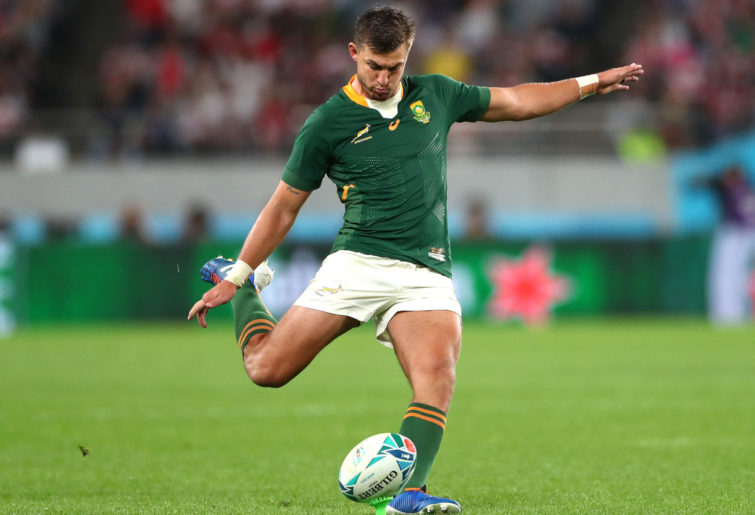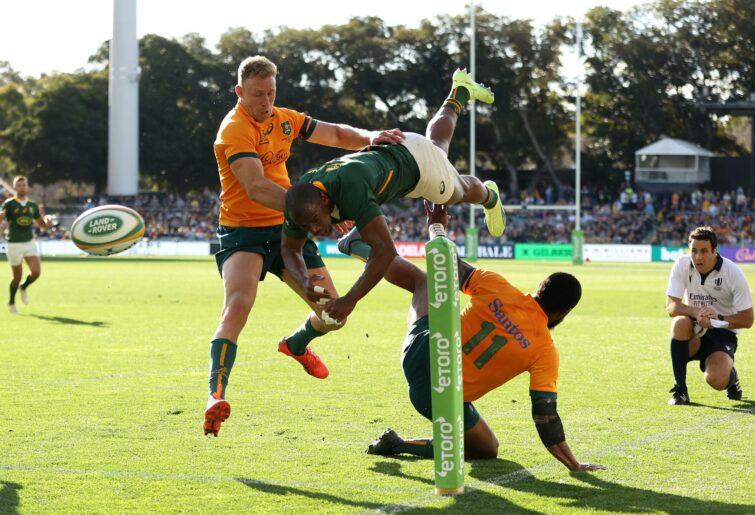Australian readers of a certain age might recall South Australian tourism ads in the 1980s and ’90s geared around ‘Amazing Adelaide’.
It was pretty much centred on the City of Churches hosting the Australian Formula 1 Grand Prix at the time, which back then was always the last race of the season.
Come for the grand prix, stay for the wineries and the city and the hills and the sunshine and the like.
It was a bold plan considering the place basically shut down for the weekend at lunchtime on Saturdays. Indeed, South Australia only this year tabled new legislation to allow shops to open before 11am on Sundays.
I love Adelaide, for what it’s worth, and spent a lot of time there in my former life in the mid-late 2000s. But even then, you could see why the ‘sleepy town’ narrative existed and where it came from.
So while the marketing for the event could absolutely have been better, and while the Wallabies really should have been in town all week in the build-up – particularly with both their AFL clubs’ seasons over – it really was a magnificent sight to see the Adelaide Oval bathed in sunshine and the stands packed with rugby fans on both sides of the Wallabies and Springboks contest.
The Wallabies winning would certainly have promoted a significant economic boost on Saturday night. Everyone I knew in town for the game had an annoyingly good weekend and it wouldn’t at all surprise to see the South Australian government trying to secure more matches.
(If the Eds are reading, I’d quite like to join you next time, please and thank you.)
Several days on from the event, it’s hard to go past the 25 minutes leading up to halftime as the period Australia put themselves into position to win a game that few dared to suggest out loud that they could.
Handre Pollard missed his first penalty goal attempt in the 15th minute, and a few minutes later, Fraser McReight made a crucial ruck pilfer on the Australian tryline and won a tackle after being tackled high after the turnover. But from the ensuing lineout, the Wallabies knocked the ball on.
Pollard pulled another penalty kick left in the 22nd minute, then landed the Springboks’ first points on the match in the 23rd.

Handre Pollard (Photo by Stu Forster/Getty Images)
Then the home side really had to roll up the sleeves.
South Africa stole another Australian lineout, then won a ruck penalty for the Wallabies not releasing the tackled player. The Aussies conceded another penalty straight away for pushing early in the lineout drive.
Rory Arnold found a lineout steal from the Boks throw, but the ball bounced clear and forced Nic White to ground it in-goal after just winning the race. Line drop-out. More ruck pressure, the Wallabies’ tackle count quickly equalled that of the Springboks by this stage, and Tom Wright copped his yellow card for being clearly offside.
It felt a matter of when the tourists would score at this point, not if.
But then a small turning point. James Slipper won a scrum penalty in the 31st minute, maybe his only victory over Frans Malherbe at set piece. Two minutes later, Duane Vermeulen won a pilfer, but the ball beat Pieter-Steph du Toit into touch soon after.
The Wallabies buggered up another lineout throw, then conceded a scrum penalty. McReight was then pinged for being offside at the maul, then Folau Fainga’a earned the official team warning for coming into the next maul from closer to nine o’clock than six.
Then the big turning point, Marika Koroibete’s incredible try-saving tackle on Makazole Mapimpi that is still being argued about today.

Makazole Mapimpi of the Springboks is tackled by Marika Koroibete (Photo by Mark Kolbe/Getty Images)
Two minutes later, the next one: Faf de Klerk is sat down with a yellow card for his strike on White. And whatever you think of White’s actions and how the card came to be, the fact cannot be denied that de Klerk got whatever the hell he was trying to do very wrong.
The Wallabies put the ball into touch at the first opportunity after the halftime bell, and somehow, they’d survived the onslaught. 10-3 at halftime. It had to have given them a massive lift going into the famous Adelaide Oval dressing rooms.
And perhaps the best part of it is that they did go on with it.
Koroibete scored his try in the 47th minute, and ten minutes later James Slipper stepped into first receiver and threw an inside pass to Noah Lolesio so good that it would have been offensive, had it not been a carbon copy of a play he ran for the Brumbies earlier this season.
After McReight finished the movement off for his second try of the afternoon, 22-3 completely reflected the contest.
Dave Rennie made mention of the second-half start being a factor in the win, but the rapid loss of intensity over the closing stages segues into concerns for Sydney this weekend.
“We started the second half well again. I think the next 20 we probably dominated, and then as you’d expect from South Africa, they asked a lot of questions and came back late,” Rennie said.
“We’re rapt with the result. We’re well aware of the challenge of next week and backing that up, which we haven’t done this year.”
And not just this year, to be fair.
In truth, consistency for his side has been about as frequent as mentions of the World 12s of late – theoretically there somewhere, but it’s been dormant for an awfully long time now.
In the 26 matches of Rennie’s tenure, last year’s five-game winning streak is the only time Australia have strung wins together. Coincidentally, they led all five of those games at halftime, too.
But there are five other wins in there which have been followed up with an immediate loss.
The 2020 Bledisloe win in Brisbane was followed by the 15-all draw with Argentina in Newcastle. Last year, the first Test win over France in Brisbane was followed by a loss in Melbourne, and the third Test win to wrap up the France series was followed by an eight-point loss in the first Bledisloe at Eden Park.
This year, the up-and-down existence has continued: a win and then two losses to England, a win and a loss in Argentina, and now a win over South Africa in Adelaide.
I feel like we could flip a coin to predict a result in Sydney, and Rennie was pretty strong on repeating the effort.
“We talked about respect being earned daily, so we’ve got to back this up,” he said.
“And what we know is the Africans are a hell of a side, and they’re going to be tougher next week as well, so we have to take our game to another level.
“We showed a lot of character in the game in Mendoza, but we didn’t back that up. If we genuinely want people to get behind us, we’ve got to front every week,” Rennie said.
He’s right, of course.
Yet again, the Wallabies will be best judged not by last week’s effort, but what they produce this weekend coming.
It was an amazing win in Adelaide. But it can’t be wasted by another sub-standard showing in Sydney on Saturday.






























































































